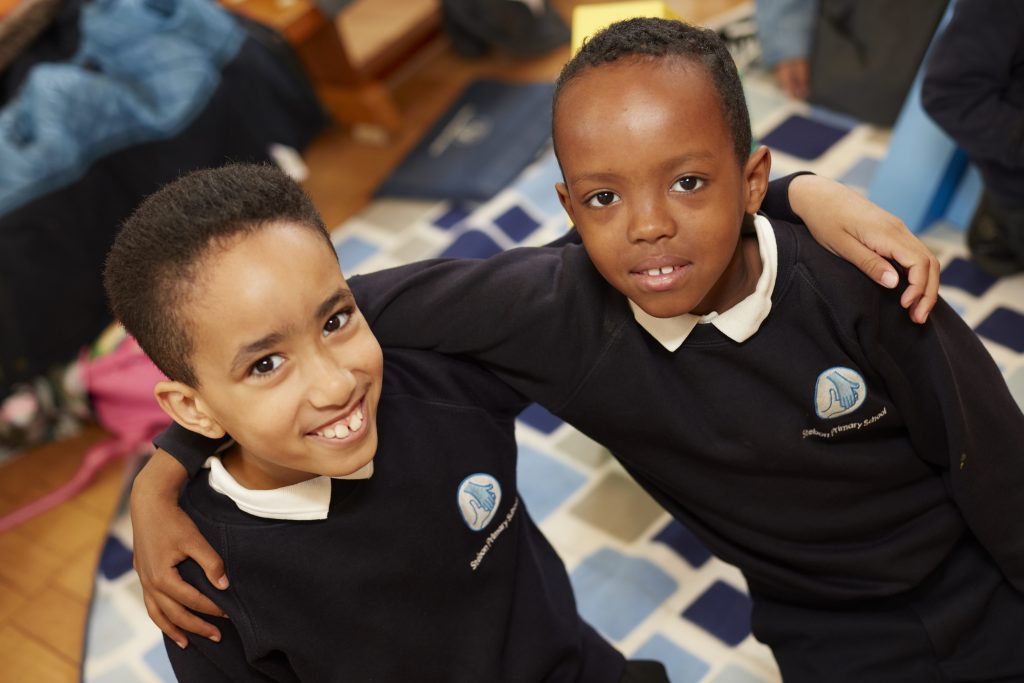UN Convention on the Rights of the Child - Article 19:
‘You have the right to be protected from being hurt and mistreated, in body or mind’
Ubuntu
We believe that relationships are the foundation of cooperation and respect. The purpose of this policy is to help staff to maintain positive relationships with pupils and foster a sense of community in which learning can take place. These values are based on the philosophy of Ubuntu, in which the continuity of relationships and community is central.
We use restorative practices to maintain strong relationships; healing harms and coming together as a community following conflict.
“When we talk about Ubuntu, we talk about humaneness. But we talk about more than that. You talk about interdependence, you talk about mutual respect, you talk about doing things to other people which you would like done to yourself.” – Dumesa Ntsebeza, South African TRC Commission
Encouraging good behaviour
School staff, pupils and parents are clear about the standard of behaviour expected of pupils in The LETTA Trust. Pupils work with their class teachers at the beginning of each school year to establish a rights respecting class charter that is displayed in the classroom.
Staff members encourage good behaviour in a range of ways including:
- Having clear shared expectations of good behaviour
- Giving pupils opportunities to feel success and share their achievements
- Teaching children about their rights and how to respect the rights of others (see RRS Appendix 6)
- Encouraging pupils to take responsibility for the impact of their behaviour
- Promoting mutual respect through PSHE & assemblies
- Nominating ‘Playground Buddies’ each year to support their peers at playtime
- Providing 1-1 counselling and using specialist teachers including learning mentors
- Building a partnership with parents or carers
- Recognising good conduct

Managing disruptive behaviour
Pupils often misbehave because they are upset. Acknowledging a pupil’s feelings makes the pupil less likely to seek negative attention. When managing an incident of difficult behaviour we:
- Always remain calm and objective
- Anticipate inappropriate behaviour and try to prevent it from occurring
- Use rights respecting language to encourage children to think about the rights of others (see Appendix 6)
- Use Restorative Approaches to help the pupil understand their impact on others (see Appendix 4)
- Make the distinction between the behaviour and the pupil
- Try to ascertain the root cause of the problem and talk to pupils individually without an audience
- Communicate empathy by reflecting back their viewpoint and defuse the situation
- Discuss the consequences of their actions and give pupils choices. Help them to realise that they are in control and can bring about a change
- Avoid nagging and lecturing
- Apologise when we make mistakes
Challenging behaviour in the Early Years is usually to do with distress, not understanding routines and lack of experience of a school setting. The following strategies are therefore based on being positive and supportive and ensuring safety. Staff:
- Offer appropriate activities to match the needs of pupils and provide a choice of experiences
- Apply a settling in policy for new pupils
- Ensure there is space and time to calm down
- Work closely with parents and carers
- Involve other members of staff or outside agencies such as the Educational Psychology Service
Strategies are positive whenever possible remembering that these pupils are unused to having to be responsible in a large group. We:
- Use positive reinforcement and role-modelling
- Discuss pupils’ behaviour with them and encourage them to apologise to others who have been hurt or upset
- Move pupils away from other members of the class if they are not concentrating or they are disturbing others
- Organise for pupils to spend time reflecting and refocusing if they continue to disrupt others (see Appendices)
- Set-up a behaviour contract or plan and involve leaders
- Speak with parents about their child’s behaviour
As the pupils get older, expectations of them taking responsibility for their behaviour and understanding the consequences increase. Expectations of the oldest pupils in the school are very high. If there are pupils who have consistently found it difficult to manage their behaviour it is important that information is passed on regarding triggers, successful strategies and past involvement of parents or outside agencies. In addition to the strategies above, we:
- Talk quietly to pupils and reinforce expectations of behaviour and the consequences of misbehaving
- Are aware and sensitive, anticipating difficulties and dealing with them before they escalate
- Organise for pupils to spend time reflecting and refocusing if they continue to disrupt others (see Appendices)
- Discuss pupils’ behaviour with them and place the emphasis on pupils taking an active role in finding solutions and changing behaviour
- Set-up a behaviour contract or plan and involve leaders
- Speak with parents about their child’s behaviour



